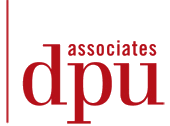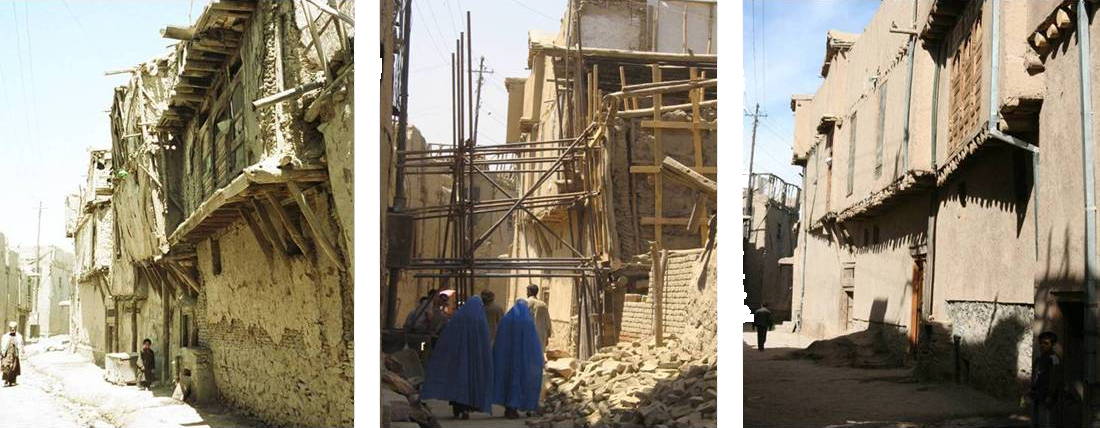Patrick McAuslan
Submitted by frankie on Sun, 2010-07-25 19:25. associates photos | Patrick McAuslanThe Future of Local Economic Development (Adrian Atkinson)
Submitted by frankie on Wed, 2010-06-30 21:14.Drawing on his experience and recent work with ILO, Adrian Atkinson reviews the underlying issues of local economic development (LED) in urban and peri-urban areas and makes the case for a re-thinking of support to local enterprise and employment, linking them directly to the macro-economic crisis approaching many cities as a result of ‘peak oil’.
Ordinary Families, Extraordinary Lives: Assets and Poverty Reduction in Guayaquil 1978-2004 (Caroline Moser)
Submitted by frankie on Fri, 2010-03-19 09:45. Caroline MoserCaroline Moser has published reflections and analysis of a quarter of a century’s longitudinal research on the struggle out of poverty of three generations of families’ who started life squatting over tidal mangrove swamps in Guayaquil, Ecuador. [A review article from ‘The Guardian’ (UK national newspaper) and extract from the book’s Prologue].
Goodbye to Natural Resource Based Livelihoods? Crossing the Rural/Urban Divide (Michael Mattingly)
Submitted by frankie on Sat, 2010-03-06 03:19. Michael Mattingly | Michael Mattingly (2012)Continuing to manage natural resources helps peri-urban people to shift from rural to city-based livelihoods. Natural resource management can continue to be important to rural people while an expanding city or town engulfs them. Michael Mattingly and Pam Gregory present this message in the October 2009 issue of Local Environment (Vol. 4, No. 9). The article arose out of Gregory's analysis and synthesis of 10 years of research on peri-urban livelihoods that was financed by the Natural Resources Systems Programme of the UK's Department for International Development and monitored by Michael Mattingly on behalf of the DPU.
Emergency Lex - and other improbable tales from the law zone (Patrick McAuslan)
Submitted by frankie on Sat, 2009-07-18 20:59.Before his untimely death in February 2014 (see Patrick McAuslan MBE, 1937 – 2014: an Appreciation (by Edesio Fernandes) Professor McAuslan reflected on some of the challenges and pitfalls involved in acting as a consultant in the field of law and development, with particular reference to his area of expertise of land.
Informal Settlements in Aleppo, Syria: developing a city-wide policy and implementation strategy (Patrick Wakely)
Submitted by frankie on Fri, 2009-06-19 21:12. Wakely 2022In 2008, Patrick Wakely started a part-time contract with the GTZ Syrian-German Sustainable Urban Development Programme to help develop a municipal policy and implementation strategy for informal settlements (IS) in Aleppo. This is linked with the development of a broader-based City Development Strategy (CDS) also being assisted by GTZ, (German Agency for Development Co-operation, the implementing agency of the German Ministry for Economic Co-operation), and the Cities Alliance. The early stages of this on-going programme have already raised interesting issues around government, governance, decentralisation and participation in the context of a country in transition to a social market economy and administration at the national, municipal and local levels.
More informal settlement in Aleppo (Syria) - photo 2
Submitted by frankie on Fri, 2009-06-19 17:28. recent news photosExample of informal settlement in Haidarieh, Aleppo (Syria)
Submitted by frankie on Fri, 2009-06-19 17:26. recent news photosMaking land work for the losers: policy responses to the urbanisation of rural livelihoods (Michael Mattingly)
Submitted by frankie on Sun, 2009-05-31 19:20. Michael Mattingly | Michael Mattingly (2012)In International Development Planning Review (vol 31, no 1), Michael Mattingly has speculated on how land policy might reduce the negative impacts of cities on the livelihoods of peri-urban farmers who tend to be poor and especially vulnerable to change. Using the findings of 10 years of research on peri-urban livelihoods in developing countries, financed by the Natural Resources Systems Programme of the UK Government Department for International Development which he advised, he assembled evidence of how land can figure in the changes to rural livelihoods.
Planning support to the Afghan Ministry of Urban Development for the safeguard & regeneration of urban heritage (Anna Soave)
Submitted by frankie on Fri, 2009-04-10 12:04. Anna SoaveIn November 2008, Anna Soave and Mona Khechen (DPU 2000) completed a 6-months assignment for the Aga Khan Trust for Culture / Historic Cities Programme (AKTC/HCP), funded by the Italian Trust Fund for Culture and Sustainable Development (ITFCSD), to assist the World Bank in its urban heritage-related activities in Afghanistan.
New book on multilateral organisations (Desmond McNeill)
Submitted by frankie on Fri, 2009-04-10 12:00. McNeill 2022Desmond McNeill has recently published a new book, co-authored with Asun Lera St Clair, critically assessing what multilateral organisations say and do in the realm of ethics and human rights. (Global Poverty, Ethics and Human Rights: the role of multilateral organisations, 2009).
Formalising informal areas in Greater Cairo: management training for senior Governorate officials (P Wakely, B Mumtaz, S Meikle)
Submitted by frankie on Fri, 2009-04-10 11:59. Babar Mumtaz | Sheilah Meikle | Wakely 2022In February 2009, Patrick Wakely, Babar Mumtaz, and Sheilah Meikle conducted a series of workshops on the decentralisation of the planning, management and upgrading of informal settlements for some 40 professionals and technicians from four of the five Governorates of Greater Cairo. They also ran a parallel course of seminars for the staff of the GTZ (German Technical Cooperation) Participatory Development Programme in Urban Areas (PDP) in Egypt. Both events raised interesting issues concerning the implementation of national decentralisation policies and strategies for participation.
Neighbourhood Planning in Kabul’s old city (Anna Soave)
Submitted by frankie on Fri, 2009-04-10 11:15. Anna SoaveSeconded in 2003 by the DPU to the Aga Khan Trust for Culture / Historic Cities Programme (AKTC/HCP), Anna Soave has been working in Kabul for 5 years as an urban planner engaged in hands-on planning in the low-income and war-affected areas of the Old City, in support of AKTC’s on-going rehabilitation programme in Afghanistan.
Presentation material for workshop on road improvements
Submitted by frankie on Fri, 2009-04-10 09:43. recent news photosPW 2009 photo edited
Submitted by frankie on Sat, 2009-02-28 05:29. associates photos | Patrick WakelySuccessful land delivery for low income housing in Iran (Michael Mattingly)
Submitted by frankie on Sat, 2008-09-06 08:57. Michael Mattingly | Michael Mattingly (2012)Michael Mattingly, Hamid Majedi (DPU PhD 1996) and Ramin Keivani (DPU PhD 1993) have recently published an account in Urban Studies of Iran's little-known experience in improving access to land for housing through large scale public land banking. Using the research of Hamid Majedi, the article examines the first 10 years of the implementation of a policy that adds to the debate surrounding the widely accepted notion of market-enabling in order to improve low-income housing provision in developing countries. This action of the Government of Iran effectively provided an alternative to land markets that have hitherto failed to serve low-income and even lower middle income households.
Making the project research: doing-by-learning with expertise (Michael Mattingly)
Submitted by frankie on Fri, 2008-04-18 21:44. Michael Mattingly (2012)Michael Mattingly hopes to generate a debate by arguing in the latest issue of Public Administration and Development that, if a development project is destined to reach only a selection of its intended beneficiaries or to give them only momentary or uncertain benefits, there is a strong rationale for making it recasting it as a research project from which lessons can be learnt from the impact that it may not otherwise have.

















